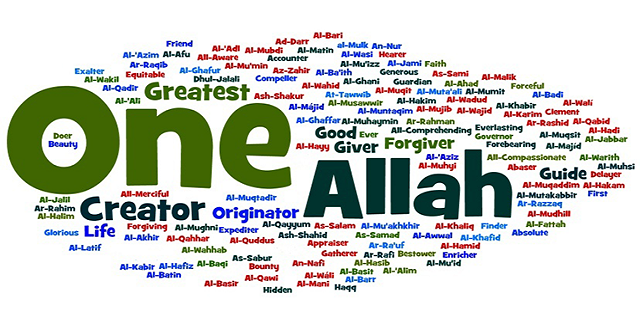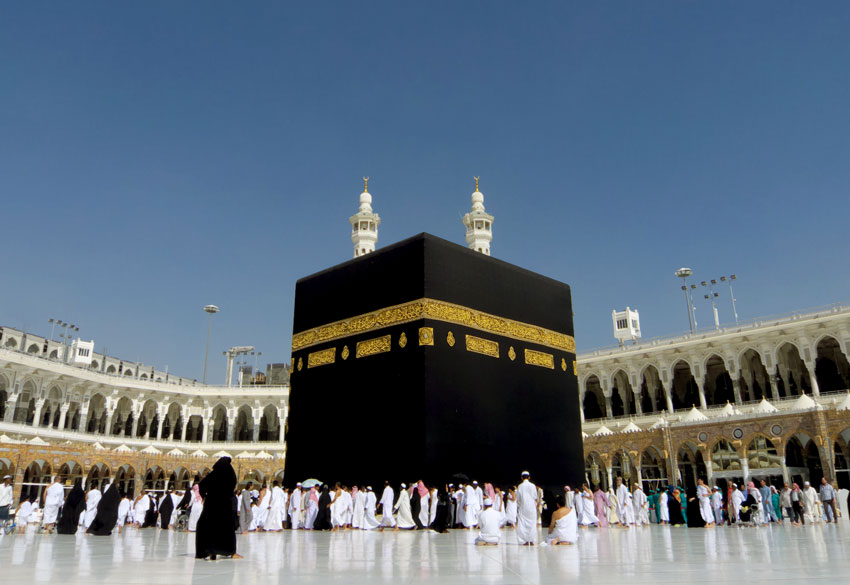What is the reality of Tawakkul and what is its philosophy?
The word tawakkul1 has been derived from وکالت (wakalat), meaning ‘taking for oneself a representative’, and a good representative generally possesses the following four characteristics: Awareness, Trustworthiness, Strength and Sympathy.
It might not appear necessary to mention that one selects a barrister for a task when the individual lacks the strength to defend himself. He therefore seeks the strength of another person and uses his assistance to solve his personal problem.
Accordingly tawakkul means that man, in the face of the difficulties of life, enmity and troubles of opponents, the tangles of existence which hinder his journey towards his objectives, and in instances wherein he finds himself unable to untie the knots, takes Allah (s.w.t.) as his support but, at the same time, does not stop his own efforts and endeavours. Rather, in those instances too, wherein he possesses the strength to perform the work, he looks upon Allah (s.w.t.) as the fundamental influencing force. This is because in the eyes of a (true) monotheist, He is the source of all strength and power.
Contrary to the attribute of ‘relying on Allah (s.w.t.) ‘ is ‘relying on other than Him’ – meaning living dependently upon someone else and not possessing self independence.
Scholars of ethics state: Tawakkul is the direct outcome of ‘Unity of Divine acts’; this is because, as we have mentioned previously, in the eyes of a monotheist every motion, endeavour, movement and occurrence that takes place in this world eventually finds a connection with the Primary Cause of this world i.e. Allah (s.w.t.); consequently, a monotheist regards every strength and power to originate from Him.
The Philosophy of ‘Tawakkul’
In the light of our previous statements, it can be inferred that:
Firstly: Relying on Allah (s.w.t.) – the interminable Source of power and strength – causes man to become more resilient in the face of the troubles and adversities of life. An example of this is when the Muslims suffered a severe blow in the battle of Uhud and the enemies, after having abandoned the battlefield, decided to return once again midway from their journey (back home) with the aim of inflicting a final blow upon the Muslims.
The Qur’an states that when the Muslims were informed of this, those who possessed firm faith were untouched by fright in this extremely dangerous moment when they had lost most of their active forces. On the contrary, placing their reliance on Allah (s.w.t.) and seeking assistance from the power of faith, they increased themselves in firmness and resistance. As a result the victorious enemies, being informed of this, hastily retraced their advance.2
Examples of such resistance, under the light of tawakkul, are observed in numerous verses, amongst them being verse 122 of Surat Ale ‘Imran, in which the Qur’an says that reliance on Allah (s.w.t.) prevented the two groups of soldiers from being overcome with lassitude, in the battlefield.
In verse 12 of Surat Ibrahim it has been mentioned that tawakkul should be accompanied by patience in the face of the attacks of the enemy.
In verse 159 of Surat Ale ‘Imran it has been ordered that when intending to perform an important task, initially consultation should take place; this should be followed up by a firm decision after which, one should place one’s reliance on Allah (s.w.t.) (and proceed in accordance with the decision taken).
The Qur’an even says that only those, who possess faith and tawakkul, shall be able to exhibit resistance vis-à-vis satanic whisperings and not be influenced by them.
إِنَّهُ لَيْسَ لَهُ سُلْطَانٌ عَلـى الَّذِينَ آمَنُوا وَ عَلـى رَبِّهِمْ يَتَوَكَّلُونَ
“Surely he has no authority over those who believe and rely on their Lord.”3
From the entire collection of these verses it can be concluded that tawakkul means that man, in the face of problems, does not experience a feeling of weakness and inferiority, but instead considers himself victorious by relying on the infinite power of Allah (s.w.t.). Thus, tawakkul is a hope-inspiring, energy-insuntiling and reinforcing factor which increases perseverance and resistance.
If the concept of tawakkul meant taking to a corner and sitting idle, it would be meaningless to attribute it to the soldiers and the likes of them.
And if some believe that resorting to various means and natural factors is not in conformity with the spirit of tawakkul, they are mistaken. This is because endeavouring to separate the effects of natural causes from the Will of Allah (s.w.t.) is a kind of polytheism. But is it not a fact that whatever the natural causes possess is from Him alone? And is it not that everything is in accordance with His Will and command? Yes, if we were to regard the causes and means to be an independent apparatus as opposed to Allah’s Will, this would be incompatible with the spirit of tawakkul.
How is it possible to interpret tawakkul in this manner when the Noble Prophet (S), the leader of those who exhibited tawakkul, had never been heedless of utilizing every opportunity, appropriate plan and other exterior means for furthering his aims and objectives; all these only go to prove that the meaning of tawakkul does not have that negative dimension attached to it at all.
Secondly: Relying on Allah (s.w.t.) delivers man from being dependent (on others) – a state, which is the source of humiliation – and imparts freedom and self-confidence to him.
At this point we present some of the traditions in connection with tawakkul for the purpose of illuminating its actual meaning.
Imam as-Sadiq (a.s.) says:
إِنَّ الْغِـنـى وَ الْعِزَّ يَجُولاَنِ فَإِذَا ظَفِرَا بِمَوْضِعِ التَّوَكُّلِ أَوْطَنَا.
“Verily, independence and honour are in (a state of) travel and when they come to the place of ‘tawakkul’ they take up residence there.”4
In this tradition, tawakkul has been presented as being the actual dwelling place of independence and honour.
It has been narrated that the Noble Prophet (S) said: I asked Jibrail: “What is ‘tawakkul’?” He replied: “Cognizance (of the fact) that the creation (of Allah) can neither cause harm nor yield benefit; neither can it grant nor withhold (a bounty); (one must) sever all expectations from the creation (of Allah). When a person becomes such, he shall never work for anyone other than Allah (s.w.t.) and shall never hope and expect from anyone other than Him, and this is the reality of ‘tawakkul’.5
Once someone questioned Imam ‘Ali ibne Musa al-Ridha (a.s.)6:
مَا حَدُّ التَّوَكُّلِ؟ فَقَالَ أَنْ لاَ تَخَافَ مَعَ اللٌّهِ أَحَداً.
“What is the extent of ‘tawakkul’? He (a.s.) replied: That you do not fear anyone once you have relied on Allah!” 7 and 8
—————————————————————-
1. Relying on Allah (s.w.t.) (Tr.)
2. Surat Ale ‘Imran (3), Verse 173
3. Suratul Nahl (16), Verse 99
4. al-Kafi, vol. 2, Chapter al-Tafwidh IlAllah (s.w.t.) Wa al-Tawakkul ‘Alaihi, no. 3
5. Biharul Anwar, vol. 15, Part 2 Fi al-Akhlaq, pg. 14 (Old Publication)
6. Safinatul Bihar, vol. 2, pg. 682
7. For more explanations in connection ‘tawakkul’ and other such issues, refer the book Angizah-e-Paidaish-e-Madhhab.
8. Tafsir-e-Namuna, vol. 10, pg. 295

















